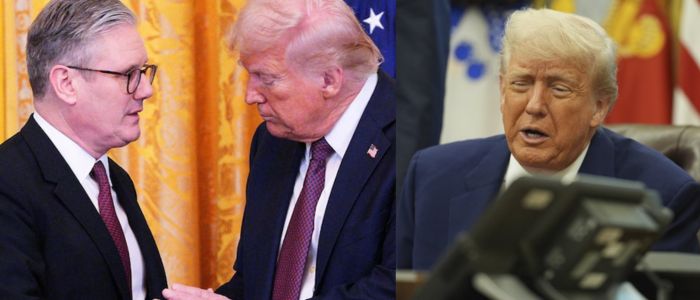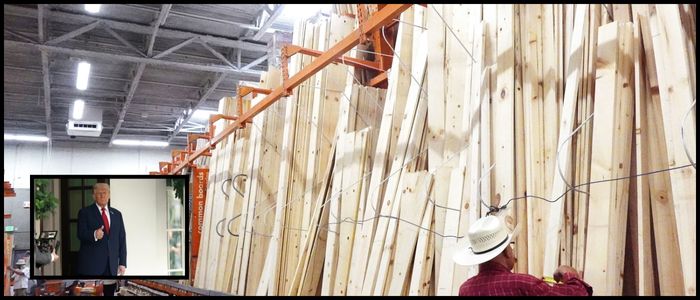The UK government is understood to have been keen on the accord as a means to shield Britain’s industries from the impact of US-led trade measures. But most UK goods — including cars — remain subject to a 10% tariff, while no decision has been taken over import charges on steel.
Prime Minister Sir Keir Starmer described it as a “very important day” on the fringes of the G7 summit in Canada. The president’s wider trade approach, playing to a domestic audience of American manufacturers, has had economic knock-on effects around the world, including UK industries such as automotive and steel.
Steel, Motor Giants Under Scrutiny
Under the terms of Trump’s order, as many as 100,000 UK car imports could soon be imported into the US at a rate of 10%, rather than the 25% that had been levied on all imports earlier this year. The document also said that a mechanism for the steel and aluminum tariffs would be established, but it did not provide details. Asked about the question of the steel duty, Trump says “I think the UK is invery good shape” because he like them.
The US currently imposes a 25% tariff on imports of UK steel and aluminum. The U.K. dodged a hike to 50% earlier this month, but the temporary reprieve is due to end if a new agreement is not struck by July 9. Steel can only be exempted if it is “melted and poured” in the country of export. As Tata Steel has closed its blast furnaces and moved to electric arc furnaces, the UK’s steel is also likely to be provided from imports.
Heidi Alexander, the shadow transport secretary, said further negotiations need to take place to reduce the current tariffs. The head of UK Steel, Gareth Stace, said the industry urgently requires clarity on “melted and poured” rules and on available quotas.
The pact also features elimination of some tariffs of aerospace goods. Sir Keir hailed it as testament to the close bond between the two nations. The changes in the tariffs will be effective seven days after publication.
Mike Hawes, chief executive of the Society of Motor Manufacturers and Traders, said the deal offers “massive reassurance” for carmakers. The company, owned by Tata Motors, had suspended shipments to the United States because of the tariffs, and in the same period, it reduced its earnings forecast. UK cars had previously faced a 2.5% tariff by the time the trade row began and would have been taxed at 27.5 percent if a deal had not been struck.
The 10% tariff rate is “discretionary and the rate conclusively provides a relative advantage over Italy and Germany,” Hawes said.
Added Preservatives Ethanol and Beef
Under the new deal, the UK will open up 1.4 billion liters of tariff-free US ethanol, down from a 19% tariff on the fuel under the former regime. ABF Sugar, which runs the UK’s biggest bioethanol facility, cautioned that this would put local jobs at risk without the government’s help.
CEO Paul Kenward said the company could be left with no other option than to initiate talks with staff at its Vivergo Fuels site in Hull over as many as 200 redundancies if help does not come by June 25.
The UK will also scrap a 20% tariff on US beef imports and lift the quota to 13,000 tonnes. Officials emphasized that any new meat that enters the UK would have to continue to meet the UK’s high standards of food safety. The business and trade secretary, Jonathan Reynolds, said that parliament would be told how quotas covering ethanol and beef would be rolled out.
Criticism and Clarification
Welcomed by ministers, the deal is narrower than a full free trade agreement. Trump called it a “major trade deal,” but US presidents are unable to sign full trade deals without the approval of Congress.
British opposition leaders were alarmed. Conservative leader Kemi Badenoch called it a “tiny tariff deal,” and Liberal Democrat spokesperson Daisy Cooper called on the government to publish full impact assessments, notably on farmers, food quality, and the steel sector.
Top

Trump Finalizes UK-US Trade Deal to Cut Tariffs

President Donald Trump has signed off on a deal to reduce some barriers between the United Kingdom and the United States. The step takes effect from 1 January 2021 and triggers elements of an agreement the two sides agreed in principle earlier this year while cutting tariffs on UK vehicles in the United States.











